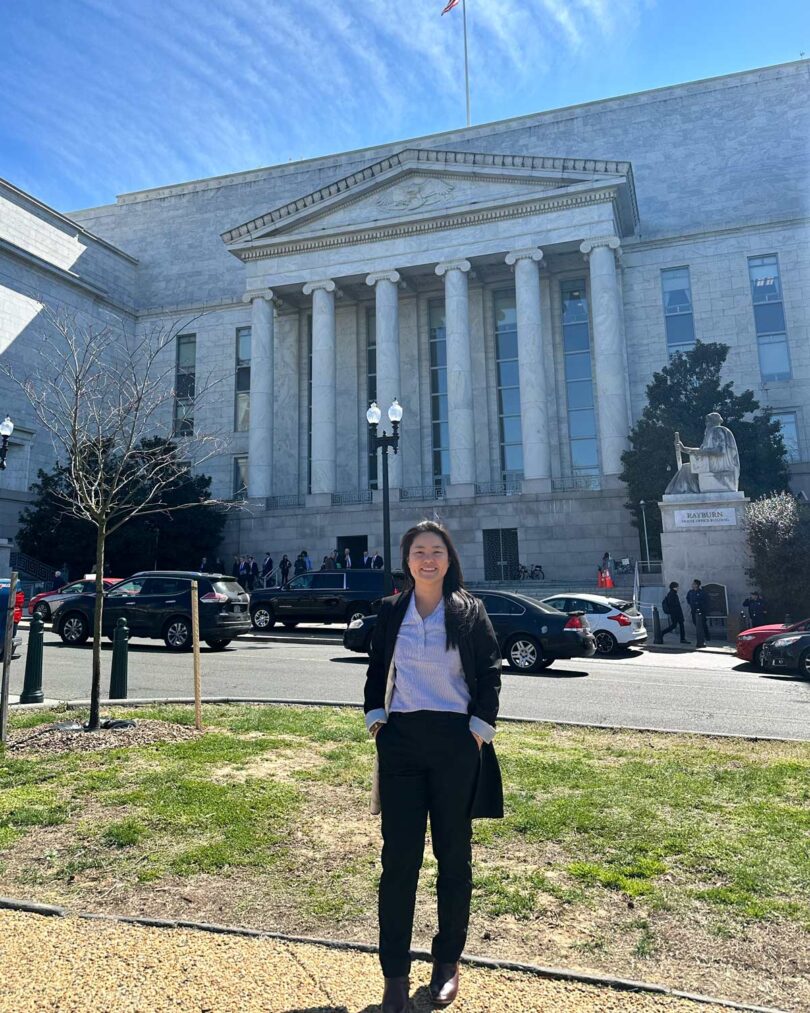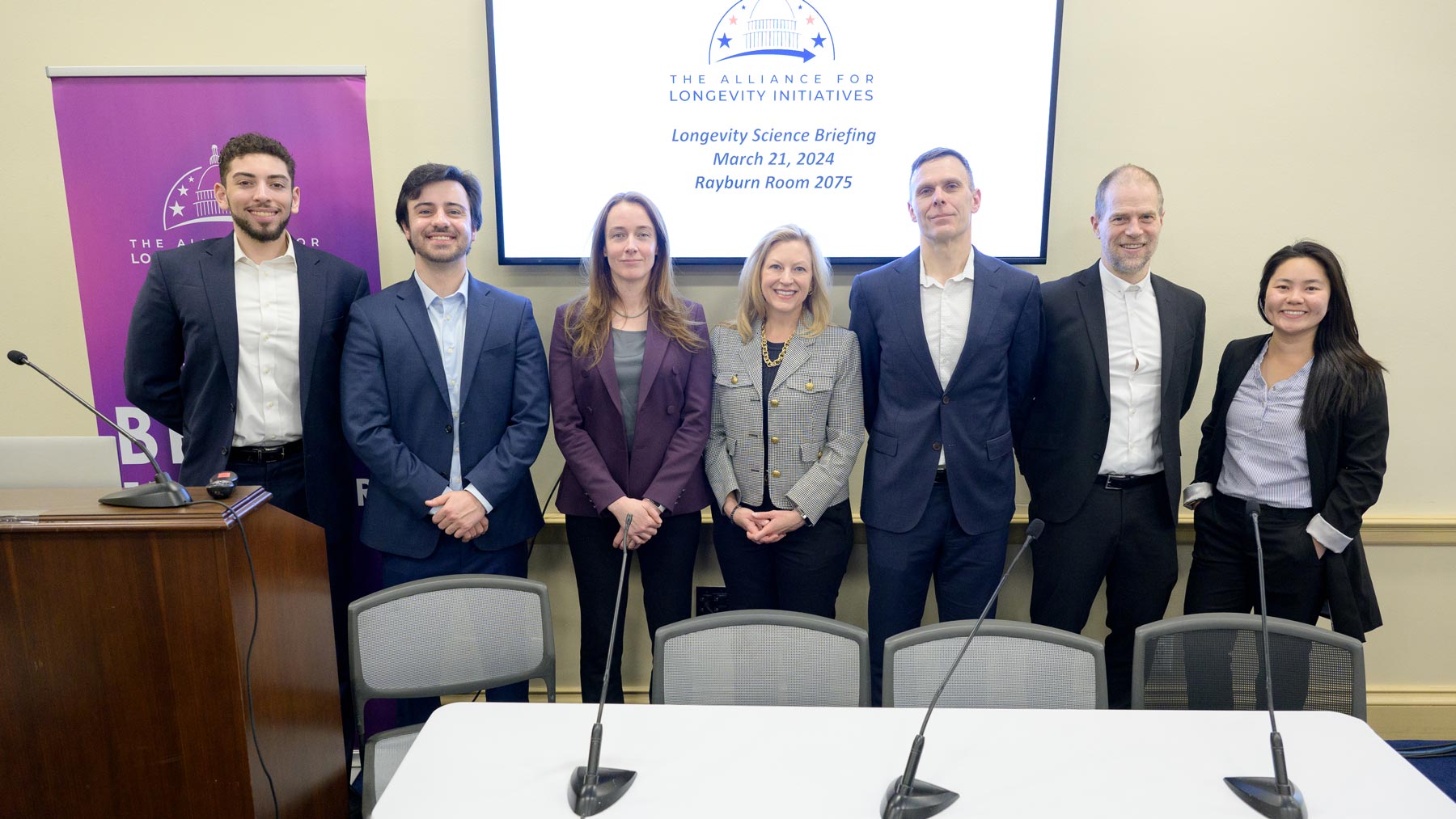The typical path for many PhD students is a research career in academia, government or the private sector. Recent USC Leonard Davis School of Gerontology graduate Brenda Eap, PhD chose a path less traveled — political advocacy.
Eap is Vice President of Operations and Partnerships at the Alliance for Longevity Initiatives (A4LI). “Our mission at A4LI is to increase human healthspan, which is the part of life spent in good health,” Eap says. “This work is critically important given our rapidly aging population. I’m excited to be part of it.”
Crafting policies for healthy aging
Established in 2022, A4LI occupies a unique space in the political landscape. Other longevity-focused nonprofits are 501(c)3 organizations, which means they cannot lobby elected officials. Because A4LI has 501(c)4 status, it can engage in lobbying and political activities.
With this nonprofit classification, A4LI focuses on two main activities to help people live healthier as they age:
- Drafting and presenting bills to Congress that increase government funding for geroscience research
- Lobbying lawmakers to streamline the Food and Drug Administration’s approval process for new drugs that target aging (gerotherapeutics)
Building an alliance
Eap’s role at A4LI is to help build the alliance. To that end, she manages existing partnerships and develops new ones. Eap has helped:
- Launch local chapters to engage citizens to advocate for local and state geroscience initiatives
- Organize a fly-in event to bring A4LI’s partners to Washington, DC. to meet and educate elected and government officials on longevity and geroscience

Eap at A4LI’s fly-in event for partners in Washington, DC.
A4LI’s partners are biotech companies developing new strategies to slow aging. Eap talks to them about their research and how A4LI can advocate for them politically. She also works with a team of lobbyists representing A4LI’s interests on Capitol Hill.
“I see myself as a liaison between our partners and lobbyists,” Eap says. “We meet monthly to discuss our political agenda and strategize how to push the agenda forward.”
Training the next generation of gerontology professionals
The seamless transition of Eap into the fast-paced world of advocacy and politics was due, in part, to her PhD training. Indeed, a hallmark of the USC Leonard Davis School is that it prepares students for a wide range of career opportunities.
Eap enrolled in the Biology of Aging PhD program in 2018. This program (now the PhD in Geroscience program) was the first of its kind. While heavily focused on aging research, the program also requires core courses in gerontology and electives in a chosen area.
Eap became interested in longevity as an undergraduate, researching plant life cycles and how plants age. When she learned about the Biology of Aging PhD program at USC Leonard Davis School, she knew that would be her next step.
Bridging research and advocacy
Eap’s dissertation research looked at fasting and ketogenic diets in mice under mentor John C. Newman, MD, PhD. She measured sex and age differences in blood biomarkers in mice exposed to these diets. Her work was part of a larger effort to investigate the effects of diet — especially the ketogenic diet — on health in aging.
“My research and the work my A4LI partners are doing now is the future of medicine,” Eap says. “It’s a personalized approach driven by biomarkers of aging and longevity.”
The elective courses at USC Leonard Davis School also helped prepare Eap for her current position. For example, she took courses on aging, social policy and age-friendly environments from professors Caroline Cicero, PhD, Mireille Jacobson, PhD and John Pynoos, PhD. Other classes helped her understand the health care system and rapidly aging population.
“I’m a scientist by training,” Eap says. “But my PhD experience helped me bridge research and advocacy. I learned there are many opportunities to cross over and work in a more interdisciplinary setting.”
Volunteering to make homes safer for older adults
How the built environment affects aging is another area of interest for Eap. In her free time, she volunteers for Rebuilding Together. This national organization helps ensure people have access to safe housing.
“Dr. Pynoos inspired me to reengage with Rebuilding Together, an organization I had volunteered for in the past,” Eap says. “As an aging-in-place expert, he talked about the many ways to make homes safer for older adults. This new perspective rekindled my interest in volunteering and has been a great way to use my training and give back to my community.”
 An optimistic outlook for the future
An optimistic outlook for the future
For Eap, the future of A4LI’s political agenda looks bright. They are building their alliance and have bipartisan support in Congress. Countries around the world are looking at A4LI as a model for how to enact longevity policies.
“During the COVID-19 pandemic, we saw a rapid response to a health crisis,” Eap says. “That experience puts us in a better position to leverage public-private partnerships to combat age-related diseases. We still need to figure out how to do that efficiently and effectively.”
Fortunately, Eap and her partners at A4LI are energized and ready to be part of this important work. They envision a future where a healthier, longer lifespan can be a reality for everyone.
To learn more about PhD programs at the USC Leonard Davis School of Gerontology, call us at (213) 740-5156.





